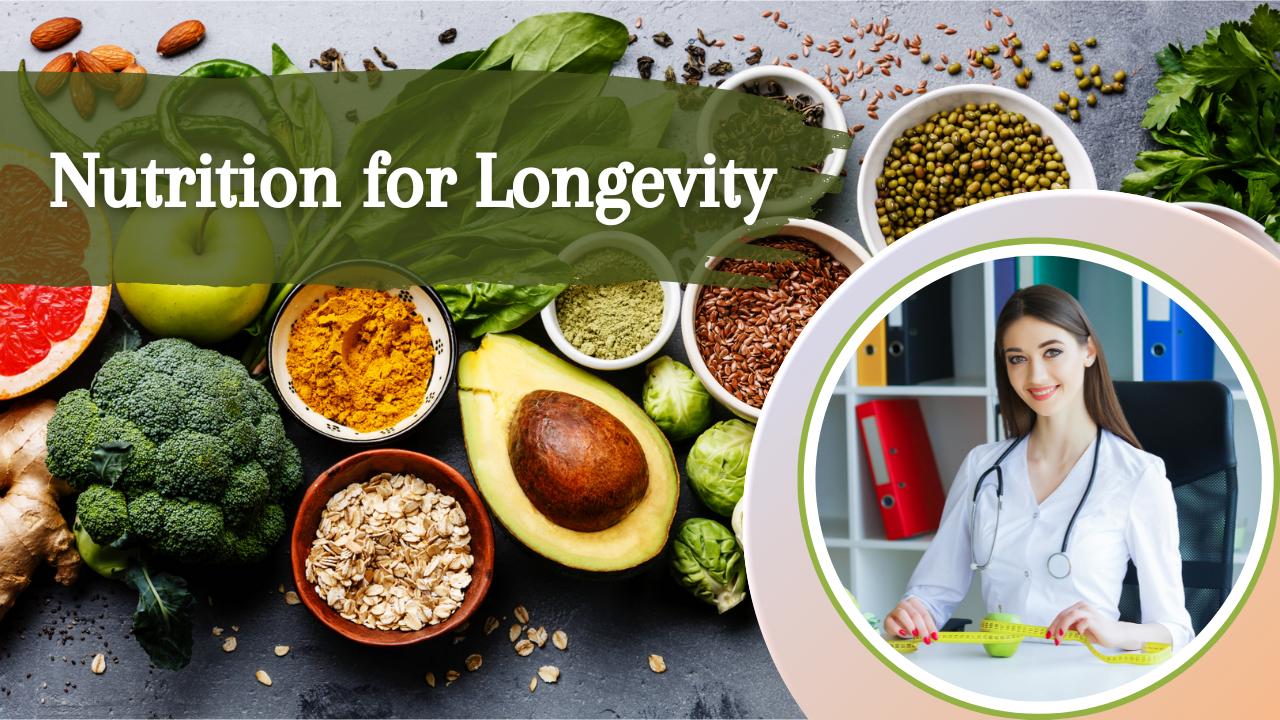Living a long and healthy life is a universal aspiration, and the foundation of achieving it lies in our daily choices, particularly our diet. Nutrition plays a pivotal role in promoting longevity by supporting bodily functions, reducing the risk of chronic diseases, and enhancing overall vitality. This article explores the key principles of nutrition that can contribute to a longer and healthier life.
Focus on Whole, Nutrient-Dense Foods
- Fruits and Vegetables: Rich in vitamins, minerals, fiber, and antioxidants, fruits and vegetables help combat oxidative stress and inflammation, both of which are linked to aging and chronic diseases.
- Whole Grains: Foods like quinoa, brown rice, and oats are excellent sources of complex carbohydrates, fiber, and essential nutrients that support heart health and digestion.
- Healthy Fats: Incorporate sources of omega-3 fatty acids, such as fatty fish, walnuts, and flaxseeds, which are known for their anti-inflammatory properties and benefits to brain and heart health.
- Lean Proteins: Opt for plant-based proteins (like beans, lentils, and tofu) or lean animal proteins (like chicken and fish) to maintain muscle mass and repair tissues.
Adopt a Balanced Eating Pattern
- Mediterranean Diet: This eating pattern emphasizes fruits, vegetables, whole grains, olive oil, fish, and moderate amounts of dairy and wine. Studies have consistently linked it to increased lifespan and reduced risk of chronic diseases.
- DASH Diet: Originally designed to combat hypertension, the DASH diet is rich in fruits, vegetables, whole grains, and low-fat dairy, with reduced sodium and saturated fat.
- Plant-Based Diets: Diets focusing on plants reduce the intake of processed and animal-based foods, which are often high in unhealthy fats and additives.
Caloric Moderation and Intermittent Fasting
- Caloric Restriction: Consuming fewer calories while maintaining nutrient intake can slow aging processes and reduce the risk of age-related diseases.
- Intermittent Fasting: Patterns like the 16:8 method or alternate-day fasting have been shown to improve metabolic health, reduce inflammation, and enhance cellular repair mechanisms.
Hydration is Key
- Water is essential for nearly every bodily function, including temperature regulation, joint lubrication, and toxin elimination. Aim for 8–12 cups daily, adjusting for activity levels and climate.
- Limit sugary drinks and alcohol, as these can contribute to weight gain, liver damage, and other health issues.
Reduce Processed Foods and Added Sugars
- Highly processed foods are often high in unhealthy fats, sugars, and sodium, which can increase the risk of obesity, heart disease, and diabetes.
- Replace processed snacks with whole food alternatives like nuts, seeds, or fresh fruit.
Prioritize Gut Health
- A healthy gut microbiome plays a crucial role in immunity, digestion, and even mental health.
- Incorporate probiotics (yogurt, kefir, sauerkraut) and prebiotics (bananas, garlic, onions) to maintain a balanced gut flora.
Limit Red and Processed Meats
- Consumption of red and processed meats has been linked to an increased risk of certain cancers and heart disease. Replace these with plant-based proteins or fish to improve longevity.
Micronutrients and Supplements
- While a balanced diet should meet most nutritional needs, some individuals may benefit from supplements like vitamin D, omega-3 fatty acids, or B vitamins. Consult a healthcare provider before starting any supplements.
Practice Mindful Eating
- Slow down during meals, savor your food, and listen to hunger and fullness cues. This reduces overeating and enhances digestion and satisfaction.
Cultivate Healthy Lifestyle Habits
- Nutrition works best when paired with other healthy habits like regular physical activity, adequate sleep, and stress management. Together, these practices create a strong foundation for longevity.
Final Thoughts
Good nutrition is not about short-term diets or drastic restrictions. Instead, it’s a lifelong commitment to eating a variety of wholesome foods that nourish your body and mind. By making informed food choices and adopting a balanced approach to eating, you can significantly enhance your quality of life and increase your chances of living a longer, healthier life.

